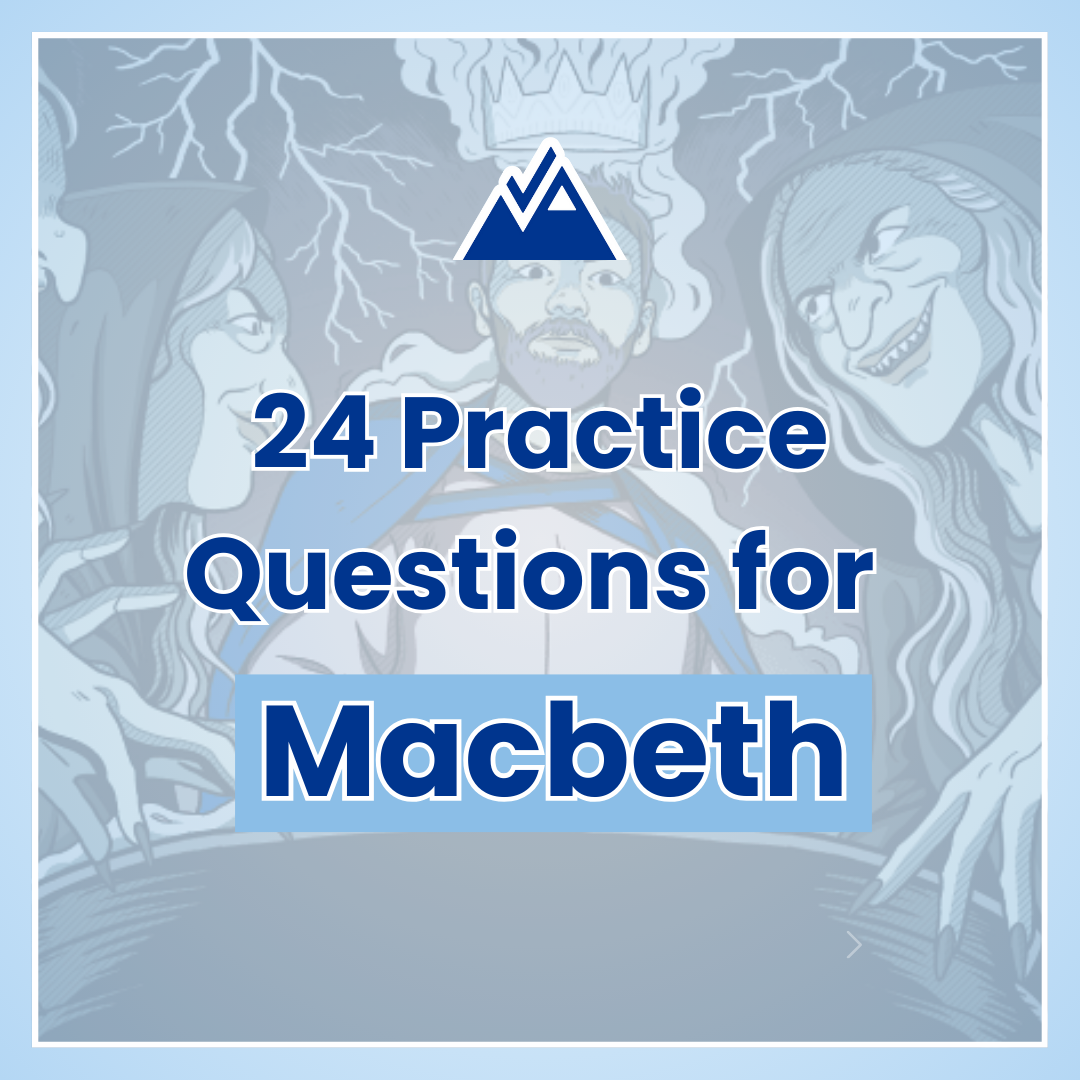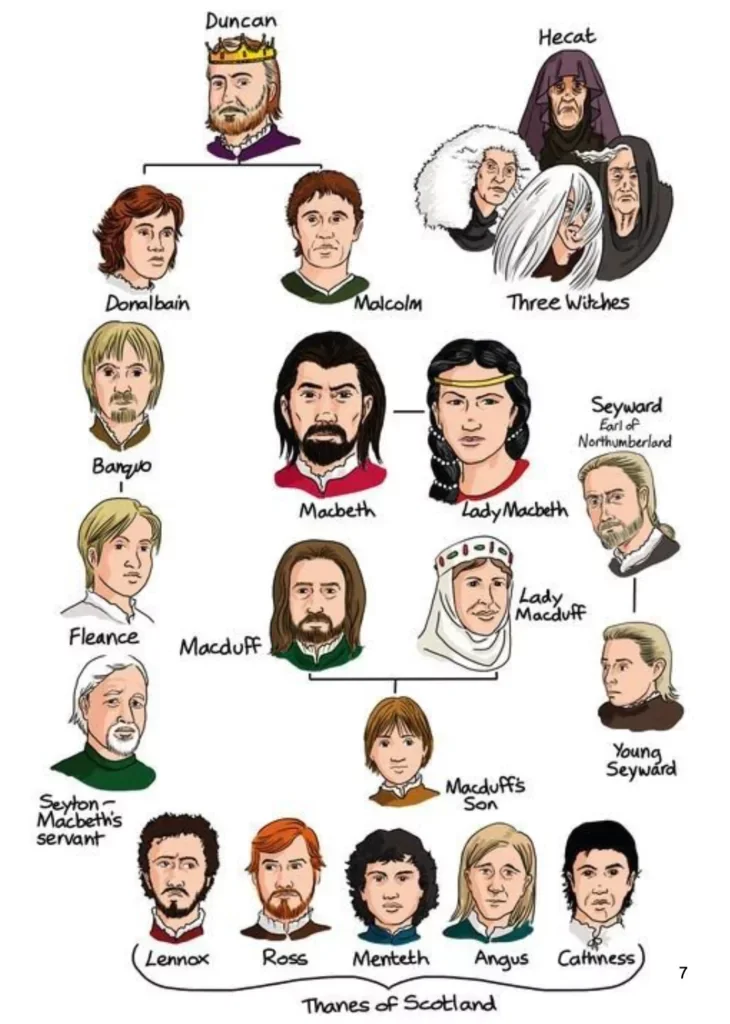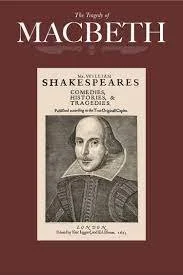24 Practice Questions for Macbeth
With end of Year 10 exams just around the corner, you might be feeling a mix of excitement and panic (but mostly panic). What’s tragedy? Or a peripeteia? Or the difference between thine and thee and thou?
Don’t worry, we’ve got you covered.
To help you feel prepared and confident, we’ve compiled a list of 24 Macbeth practice questions, designed to test your knowledge and get you thinking about the play from multiple angles. We’ve arranged them into 4 key question types: To what extent, discuss, form and extract questions, so you’ll be prepared for whatever your teacher throws at you.
So grab your notes, sharpen your pencils, and let’s dive in!
‘To What Extent’ Questions
Macbeth is a play about the dangers of ambition. Do you agree?
‘The central issue of the play is the conflict between duty and desire.’ To what extent does this reflect your understanding of the play?
Macbeth is entirely responsible for his own downfall. Do you agree?
‘Macbeth is a play that explores the darkness of human nature’. To what extent do you agree with this statement?
‘Ultimately the play, Macbeth explores the problematic nature of power.’ To what extent does this statement reflect your thinking about the play?
‘Ultimately the play, Macbeth explores the problematic nature of leadership.’ To what extent does this statement reflect your thinking about the play?
‘People shape their own destinies, even when they believe otherwise.’ To what extent does Macbeth suggest that individuals are responsible for shaping their own futures despite external influences?
To what extent is Macbeth a tragedy driven by moral conflict rather than political ambition?
“Violence is both the source of Macbeth’s rise and the cause of his downfall.” To what extent does this statement reflects the play’s central concerns?
“The witches are a device to reveal, rather than cause, Macbeth’s darker impulses.” To what extent do you agree?
‘Discuss’ Questions
‘Shakespeare’s Macbeth offers an exploration of the disruption of the moral and natural order.’ Discuss this statement in light of your understanding of William Shakespeare’s Macbeth.
“Shakespeare’s tragedy Macbeth shows that evil deeds never go unpunished.” Discuss how this idea shapes the development of the play.
“Macbeth is ultimately destroyed by the choices he makes, not by fate.” Discuss the extent to which this interpretation is supported by the play.
‘The desire for success can push people beyond their moral limits.’ Discuss how Macbeth portrays the consequences of allowing personal ambition to override moral boundaries
Discuss whether the character of Macbeth falls victim to fate or free will.
“Lady Macbeth is more ruthless than Macbeth and drives the plot’s tragic events.” Discuss.
Form Questions
“Macbeth is a Shakespearean tragedy that follows the rise and fall of its central character.” Discuss
Discuss how Shakespeare uses the conventions of tragedy to shape the audience’s understanding of Macbeth’s downfall.
Examine how Shakespeare uses dramatic irony in Macbeth to engage the audience and heighten tension.
How does Shakespeare use content, language, and construction to develop Macbeth as a tragic figure throughout the play?
“Macbeth is a tragedy because his own choices lead to his downfall.” Discuss in terms of form.
“Shakespeare’s Macbeth is a tragic hero because he evokes both fear and pity.” To what extent do you agree?
Extract Questions
“Come, you spirits
That tend on mortal thoughts, unsex me here,
And fill me from the crown to the toe top-full
Of direst cruelty! make thick my blood;
Stop up the access and passage to remorse,
That no compunctious visitings of nature
Shake my fell purpose…How does Shakespeare portray the tension between human nature and the supernatural?
“Will all great Neptune’s ocean wash this blood
Clean from my hand? No, this my hand will rather
The multitudinous seas incarnadine,
Making the green one red.”How does Shakespeare portray the psychological and moral consequences of guilt?
“To be thus is nothing;
But to be safely thus. Our fears in Banquo
Stick deep; and in his royalty of nature
Reigns that which would be fear’d…”Analyse how Shakespeare explores the corrupting nature of power and the rise of tyranny in Macbeth.
Looking for some extra help with your Macbeth essay?
We’ve got an incredible team of English tutors at Pinnacle Learners!
If you’re studying Macbeth, we’ll help you strengthen your essay writing and build the confidence to ace your next assessment.
Our one-on-one lessons are available online or in person at our office in Rozelle, giving students across Sydney’s Inner West (Balmain, Leichhardt and beyond) the support they need to excel.
Over the years, our students have boosted their results by 20% or more through expert guidance, proven strategies, and mentoring that goes beyond the textbook.
In the meantime, enjoy some curated memes:







